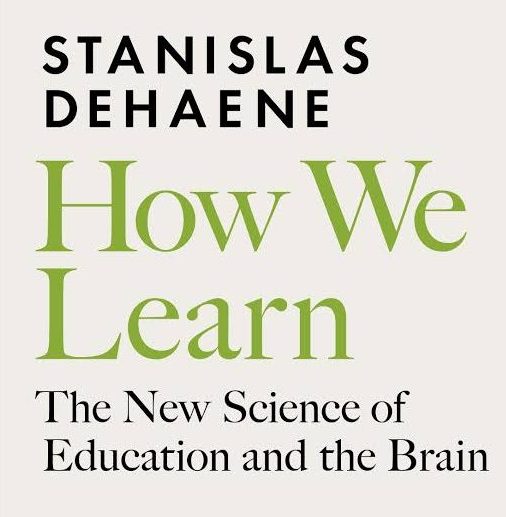Upon mid-reading of Dehaene’s 2020 book “How We Learn: The New Science of Education and the Brain”.
The first take home from this book, that I haven’t finished reading yet, is to: REDESIGN YOUR NAME. I called the wrong person yesterday, as I was reading Dehaene, when I called Patrick Mc in my phone address book. I reached Patrick McCray (my favorite historian of science and technology) when I was trying to reach Patrick McCully (my favorite police captain, the lead in the artscience of creative policing). Try searching them online. My cell phone is stupid its not affected by it’s context, my brain is.
I am sitting in my favorite brunch restaurant in Dallas.

Why is this relevant to this blog post? Because I now think differently about how my brain functions after reading this book. And in January I start (co) teaching a graduate seminar on Experimental Publishing and Curating. I will redesign the seminar based on this book. My previous syllabus is clearly erroneous and based on incorrect understanding of the brain.
About the Author:
Roger F. Malina is a space scientist and astronomer, with a specialty in extreme and ultraviolet astronomy, space instrumentation and optics. He served as director of the Observatoire Astronomique de Marseille Provence and was NASA Principal Investigator for the Extreme Ultraviolet Satellite project at the University of California, Berkeley.
He is also a publisher and editor in the new emerging research fields that connect the sciences and engineering to the arts, design and humanities. Since 1982, he has served as Executive Editor of the Leonardo Publications at MIT Press. He founded, and serves on the board of two nonprofits, ISAST in San Francisco and OLATS in Paris, which advocate and document the work of artists involved in contemporary science and technology.
He is currently a Distinguished Professor of Art and Technology and Professor of Physics, at the University of Texas at Dallas and Directeur de Recherche for the CNRS in France. He serves as the Associate Director of ATEC, and founded the ArtSciLab in the ATEC program fall 2013.

